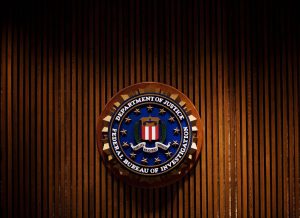Should Suspected Criminals Expect Any Right to Privacy?
What sort of measures should authorities be allowed to take to capture alleged criminals? On June 23rd, a federal judge ruled that the FBI didn’t need to obtain a search warrant before they hacked into the computer of a man who had allegedly viewed child pornography. In his ruling, Judge Henry Morgan argued that the defendant, Edward Matish, had no “reasonable expectation” of privacy in his IP address.
Should the Government Be Able to Use Any Technology to Catch Criminal Activity?
The case against Edward Matish centered around a child pornography site, Playpen, that was only accessible through Tor, a browser designed for anonymous web surfing. After taking control of Playpen in early 2015 (and arresting its operator), the FBI secretly gathered information about its users through a tool known as a NIT, or network investigative technique, that let investigators see the IP address of each individual who logged on to the site.
Attorneys for Matish said that the evidence gathered by the FBI’S NIT should not be allowed to be presented in court. After all, his attorneys argued, there was no search warrant specifically naming Matish when the FBI hacked into his computer. 
However, Judge Morgan took the opposite view, stating that in Matish’s case the government’s duty to protect its citizens superseded any concern over Matish’s privacy in the face of electronic surveillance. In his remarks, Judge Morgan added: “The Government should be able to use the most advanced technological means to overcome criminal activity that is conducted in secret.”
Interestingly, not all cases involving people who were unknowingly put under digital surveillance before being accused of viewing child pornography have ended in a ruling like the one levied against Edward Matish. Federal judges in at least two similar cases have ruled in favor of the defendant, saying that the FBI’s Virginia-issued warrants (which called for the use of the FBI’s NIT) were invalid because the defendant’s alleged crimes did not occur in Virginia.
If the government’s duty to protect its citizens is so powerful, why didn’t federal judges in other cases involving underground child pornography declare the FBI’s NTT warrants valid? Could those other federal judge’s rulings signal that the FBI’s use of digital surveillance techniques is not always the best option in rooting out criminals?
But Shouldn’t the Government Do What It Can to Root Out Child Pornography?
One of the issues raised in United States v. Matish was whether the defendant’s Fourth Amendment right against unreasonable searches and seizures by the government was violated when the FBI hacked his computer. Whether a search is considered reasonable under the law is determined by considering whether the government’s legitimate interests, such as public safety, outweigh an individual’s right to privacy.
In other words, the government has to decide whether a crime’s danger to the public is even more pressing then the alleged criminal’s Fourth Amendment rights.
Judge Morgan cited a Supreme Court decision to bolster his reasoning that the FBI’s actions in Matish’s case amounted to“peering into a gap in closed blinds, “which does not violate the Fourth Amendment. Judge Morgan’s choice of words, which conjure up the FBI taking only a quick glance at the underground child pornography site, do not seem to align with what actually occurred in the investigation.
In fact, the FBI gathered Playpen users information over the course of 13 days, using their NIT that some have characterized as “malware.” The FBI has actually taken steps to keep the code to the NIT used in the Playpen investigation secret, calling it a matter of national security.
Judge Morgan’s assertion that Edward Matish had no “reasonable expectation” of privacy in his IP address drew outrage, even in the face of the defendant’s alleged viewing of child pornography. Privacy advocates argued that the implications of Judge Morgan’s ruling were staggering–that it set the precedent for law enforcement to remotely search and seize information from anyone’s computer without a warrant or even probable cause.
While some might argue that the capture of someone who has allegedly viewed child pornography is more important than any concern about the government violating their privacy, a couple of questions cannot be ignored. Does anyone, according to Judge Morgan’s logic, have a reasonable expectation of privacy in their IP address? And what other ways could the government employ the use of NIT in the future?

Comments